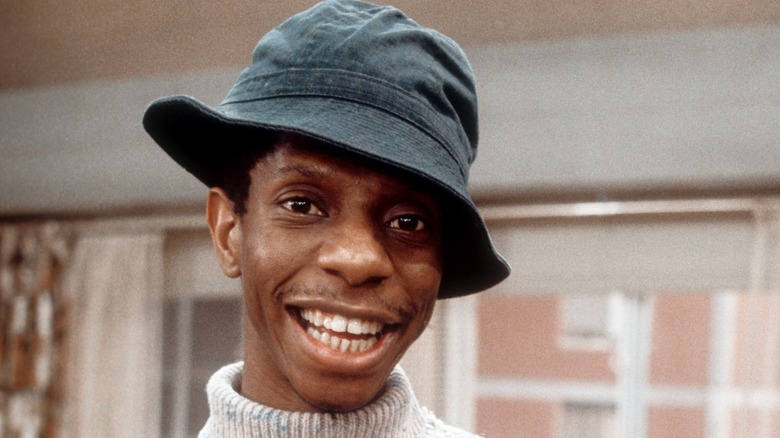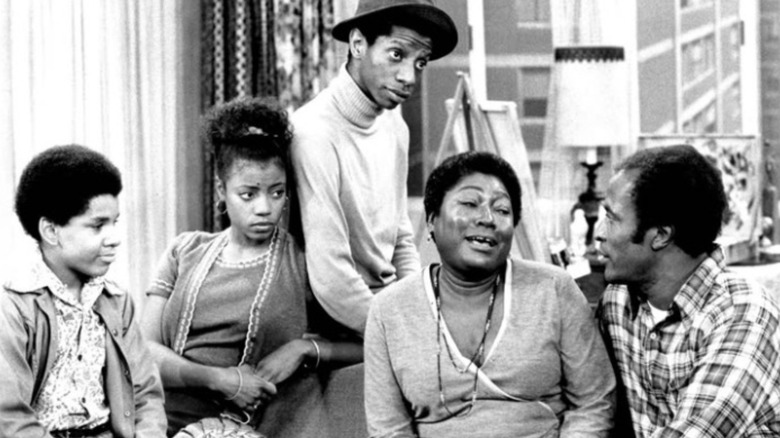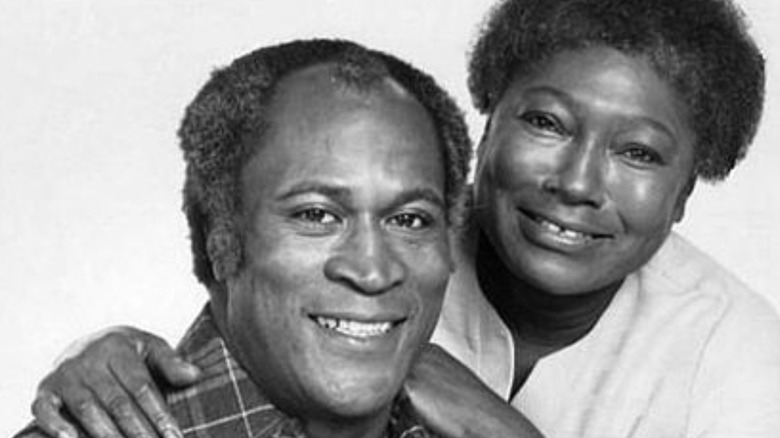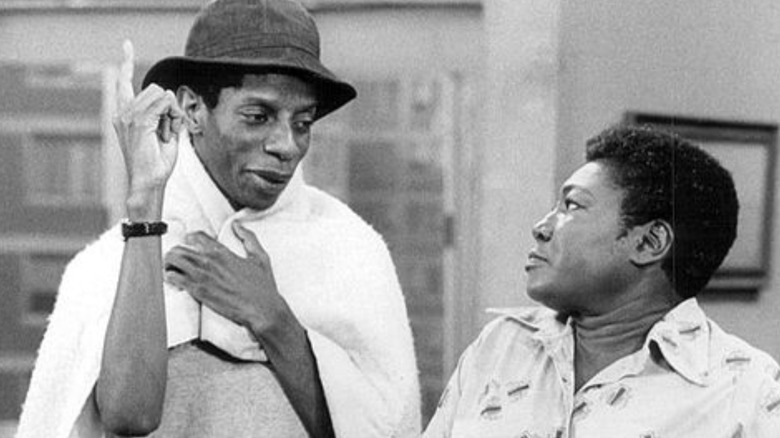Jimmie Walker's Relationship With His On-Screen Parents In Good Times Might Surprise You
It should come as no surprise that any workplace is going to be the scene of interpersonal relationships among the people that work there. Office friendships, office romances, and office drama are all things that pop up when you put humans in the same space together for hours per day, over the course of years.
A TV soundstage is not the same thing as an office, but the same principle applies. The men, women, and children who work on such a set are bound to form relationships with each other, for good or for ill. Sometimes, those relationships are lifetime friendships, such as that of "Modern Family" stars Sofia Vergara and Rico Rodriguez. Others ... not so much.
From 1974 to 1979 the cast of "Good Times" spent hours on the set together on days they were filming the show, and as it turns out, Jimmie Walker, who portrayed the oldest son of a poor Chicago family trying their best to survive, and the actors who portrayed his on-screen parents, weren't friends at all, and there may have even been some hostility between him and actors Esther Rolle and John Amos.
Comic Relief
Back in the 1970s, the TV landscape was changing. Gone were the inoffensive family sitcoms like "Leave It To Beaver" and "My Three Sons" in favor of gritty and unflinching looks at some of the realities of life for many Americans, albeit through the lens of comedy. Producer Norman Lear's "All In The Family," for example, was a sitcom that didn't shy away from tackling racial issues. And that show, according to Screen Rant, produced a spinoff, "Maude," which itself produced a spinoff, "Good Times."
"Good Times" follows the lives of a Black family living in a Chicago housing project. Family patriarch James Evans (John Amos), matriarch Florida (Esther Rolle), and their three children all do their best with what little they have. Two of the kids were ambitious; one wanted to be a surgeon, the other to be a Supreme Court Justice. However, the couple's oldest son, J.J., played by Walker, was a goofy layabout whose character was largely a vehicle for comic relief.
John Amos And Esther Rolle Weren't Feeling It
Actor John Amos, who played family patriarch James Evans, didn't last through the entire run of "Good Times," having been fired about halfway through the show's run, his character being killed off. In an interview with the Television Academy Foundation, Amos made it clear why: long story short, he complained too much.
Specifically, he didn't like the fact that a show about the Black experience was being penned by white writers. And he hated the show's reliance on J.J.'s goofy comic relief. "I felt that there was too much emphasis being put on J.J. and his chicken hat saying 'Dynomite!' every third page," he said, in addition to his other complaints.
Esther Rolle, for her part, didn't seem to care much for Walker, either. As Norman Lear would later write, via Showbiz Cheat Sheet, Rolle was also peeved by J.J.'s popularity. "J.J.'s popularity with the largely Black audiences that came to the tapings was a friendly, joyful distraction to the company, but a great annoyance to our stars. Frankly, they hated it," he said.
The Feeling Wasn't Mutual
Despite the fact that the actors who portrayed his parents disliked him –- or at least, disliked what he represented -– Jimmie Walker may have been keen to have a relationship with them if they'd been open to it. "Had John and Esther thrown their arms around this wild but tender talent and been grateful for what he brought to the show, so hungry for their respect and kindness was Jimmie, they could have owned the lad and helped him to mature," said Lear, via Showbiz Cheat Sheet.
Walker himself would say, in his own interview with the Television Academy Foundation (via YouTube), that the atmosphere on the set was downright frosty. "We were never friends, we never talked. If you said at that time 'Call Esther and ask her about [anything],' I wouldn't even have her number. We never spoke to each other. Only on the set," he said. He added that, at the time (2018), he did speak to Amos from time to time, but only "a little bit, but very, very little." Esther Rolled died in 1998.



